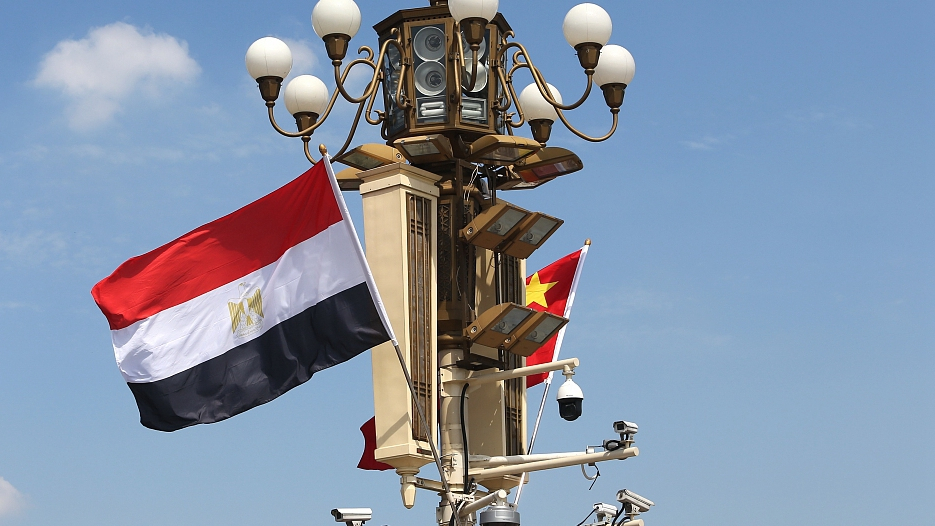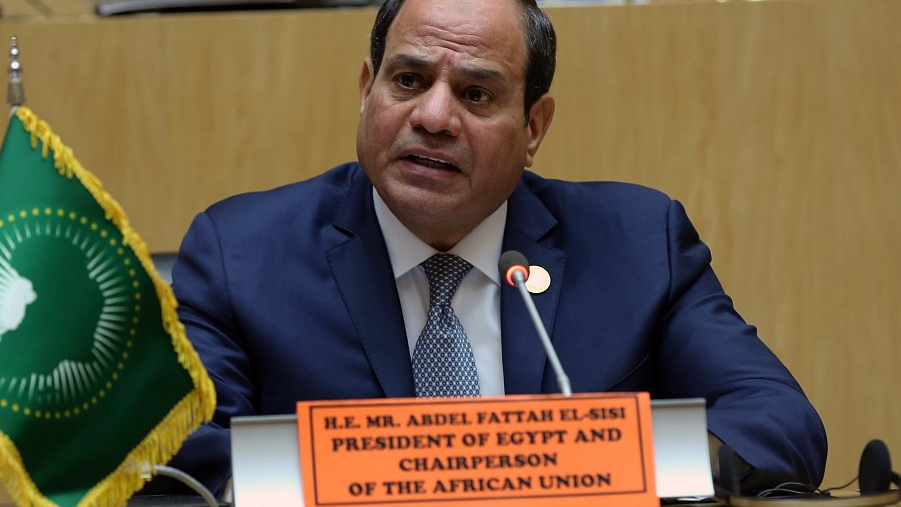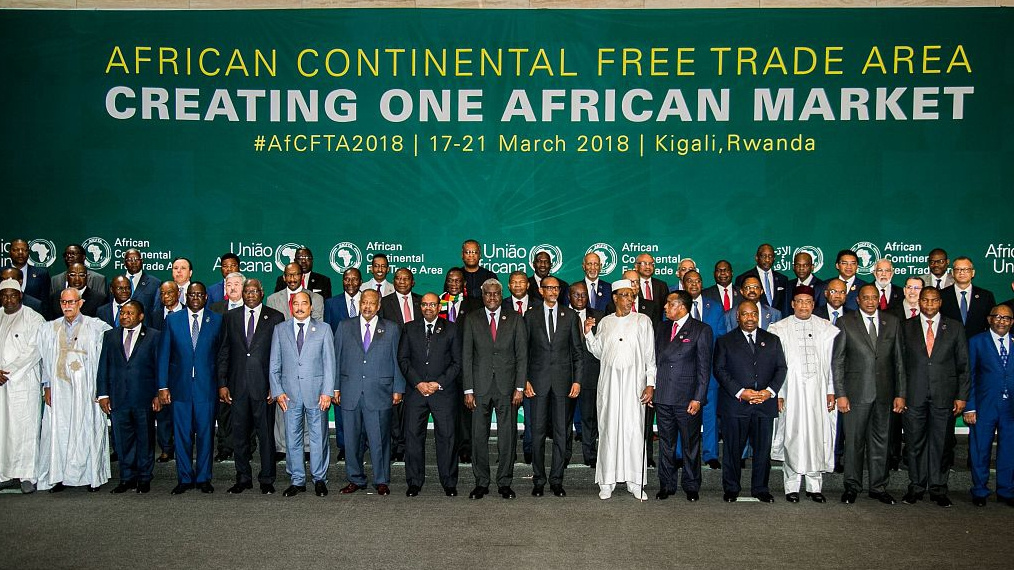
Opinion
13:49, 18-Feb-2019
China is dispelling the clouds over Egypt during its AU presidency
David Lee

Editor's note: David Lee is a consultant and author based in Beijing who works on cross-cutting themes of energy, health, international politics, and international development. The article reflects the author's opinions, and not necessarily the views of CGTN.
The year 2019 is expected to be important for both China-Egypt relation and the African Union as Egypt formally took over the one-year rotational presidency of African Union (AU) at its 32nd summit earlier this month.

President of Egypt and term Chairperson of the African Union Abdel Fattah al-Sisi makes a speech during the closing session of the 32nd Ordinary Session of the African Union (AU) Summit held at African Union Headquarters in Addis Ababa, Ethiopia on February 11, 2019. /VCG Phote
President of Egypt and term Chairperson of the African Union Abdel Fattah al-Sisi makes a speech during the closing session of the 32nd Ordinary Session of the African Union (AU) Summit held at African Union Headquarters in Addis Ababa, Ethiopia on February 11, 2019. /VCG Phote
For the China-Egypt relations, as the Egyptian President al-Sisi told his Chinese counterpart that Egypt would continue to support and participate in the Belt and Road Initiative during his visit to China last September, the China-Egypt relationship has reached a new high since the ink on Memorandum of Understanding between the Government of the People's Republic of China and the Government of the Arab Republic of Egypt on Jointly Promoting the Silk Road Economic Belt and the 21st Century Maritime Silk Road Construction on January 2016.
As for the AU, China praised much as president Xi Jinping commended the role of AU as a banner of unity and strength to “continue to unite and lead African countries towards new and greater achievements.” in a congratulatory message to the AU summit last week.
Resuming its AU membership following the undesirable disruption several years back when the Muslim Brotherhood-led government was toppled by the military, Egyptian expectations have been high on its AU presidency.
This was reflected by al-Sisi's high spirited remarks at the Africa 2018 Forum in Sharm el-Sheikh last December. “Egypt will be back in Africa with all the strength and force required,” said al-Sisi. “We are proud to be part of this continent and it is high time for us to be a major player and partner. Egypt will use 2019 and its chairing of the AU to push for economic, legislative and political reforms in Africa in order for the continent to have a greater say in world affairs.”
China is a ready partner in support of Egyptian ambition. There are overall genuine good wishes among Chinese commentators for Egypt's return to the AU center stage of the African Union.
For example, Chinese analysts have been quick to note that Egypt has been supportive of the Continental Free Trade Area (CFTA), keen to attract new investments into the continent, and ready to provide the gateway to connect China's Belt and Road Initiative to the African Opportunity.

The African Heads of States and Governments pose during African Union (AU) Summit for the agreement to establish the African Continental Free Trade Area in Kigali, Rwanda, on March 21, 2018. /VCG Photo
The African Heads of States and Governments pose during African Union (AU) Summit for the agreement to establish the African Continental Free Trade Area in Kigali, Rwanda, on March 21, 2018. /VCG Photo
In sharp contrast to the general Chinese positivity in response to Egypt's presidency at AU, western media have paid much more attention to the so-called concern about human rights violations by al-Sisi's government as well as recent political development within the borders of Egypt that may extend al-Sisi's leadership until 2034.
In this case, Egypt's AU presidency has been greeted in the West more by sharp criticism than any gesture for cooperation.
The sharp contrast of tones in the case of Egypt, if anything, provides an interesting case for the international community to observe how China and the West treat interlocutors differently.
China and Egypt, though different in many aspects, pursue development for mutual benefit, particularly within the Belt and Road Initiative framework and China has never condescended on Egypt in a complacent belief that China's economic success story makes itself the rightful teacher or moral leader.
The accusations by the self-righteous moral judges don't suggest anything accommodating to Egyptian socio-economic development or any constructive relationship with the Egyptians.
In the future, China will remain firm and strong to work with the new AU presidency as the second Belt and Road Summit draws near and dispels the dark clouds of the western media over Egypt during its AU presidency.
(If you want to contribute and have specific expertise, contact us opinions@cgtn.com.)

SITEMAP
Copyright © 2018 CGTN. Beijing ICP prepared NO.16065310-3
Copyright © 2018 CGTN. Beijing ICP prepared NO.16065310-3